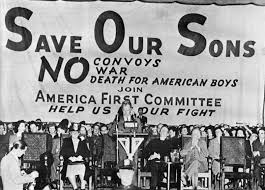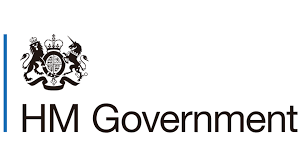- Return to sender - 20th February 2026
- Legal eagle - 19th February 2026
- Round Robin - 19th February 2026

After examining the changes in attitudes towards women and gay people since he started in journalism 36 years ago, here our Editor Phil Parry looks at why today’s major world events pale into insignificance compared with those during recent history.
In the past he has also described how he was helped to break into the South Wales Echo office car when he was a cub reporter, recalled his early career as a journalist, the importance of experience in the job, and making clear that the ‘calls’ to emergency services as well as court cases are central to any media operation.

He has also explored how poorly paid most journalism is when trainee reporters had to live in squalid flats, the vital role of expenses, and about one of his most important stories on the now-scrapped 53 year-old BBC Cymru Wales (BBC CW) TV Current Affairs series, Week In Week Out (WIWO), which won an award even after it was axed, long after his career really took off.
Phil has explained too how crucial it is actually to speak to people, the virtue of speed as well as accuracy, why knowledge of ‘history’ is vital, how certain material was removed from TV Current Affairs programmes when secret cameras had to be used, and some of those he has interviewed.

Earlier he outlined why investigative journalism is needed now more than ever although others have different opinions, and how information from trusted sources is crucial at this time of crisis.
Today’s crises are enormous, but they are as nothing compared with those in the past.
This salient fact hit home to me with the current gloomy response to the lockdown over coronavirus/Covid-19.

Nothing can take away from the very real threat of the virus, particularly to older people, or the heroic actions of our key workers.
And they have come hard on the heels of a momentous decision by a divisive Prime Minister, who has been elected with a huge majority, to lead us out of one of the largest trading blocs in the world, the European Union [EU] (to which many people objected), as well as the extraordinary policies of an erratic populist President of the USA who has boasted of assaulting women.


There are other things to worry about too.
Research shows that most people across the world think governments have reacted badly to Covid-19; the non-democratic state of China has an enormous population and under its leader is aggressively flexing its muscles across the world; the bizarre state of North Korea could be the centre of another conflagration as its strange leader appears to want to cling on to its nuclear programme and take on a neighbour.

These are undoubtedly major events, but they are not in the same league as those in the 1930s and early 1940s.
Then you had a world almost totally governed by totalitarian regimes.
Hitler ruled in Germany, Mussolini in Italy, Franco in Spain and Stalin in the Soviet Union (now mostly Russia), and only a world war resolved matters.
My own dad fought against the axis powers during that war.
Other countries were also in the grip of dictatorships, and an expansionist imperialism held sway in Japan.

It’s true that there were democracies in the UK and USA, but during the 1930s and 1940 in the latter, right wing isolationist movements were enormously influential.
Let’s take for instance the current coronavirus crisis, and how it is viewed around the globe.
Judged by death tolls alone, neither the USA nor the UK have managed the pandemic particularly well.


In the UK for example, public-health authorities have recorded more than 42,000 Covid-19 deaths.
The excess death rate – the number of deaths above the historical average adjusted for population – is the world’s highest (though not all countries report the required data).
In the USA the death toll has climbed to more than 116,000.

Yet these grim tallies have not stopped either country’s leader from boasting about their virus-fighting achievements.
Boris Johnson, has promised a “world-beating” test-and-trace system, though the current system may miss three-quarters of new cases.
President Donald Trump, meanwhile, has described the USA as “the world leader” in tackling the virus.

But just 58 per cent of Britons are satisfied with their government’s handling of the pandemic.
In the USA the figure is even lower, at 53 per cent.
In the massive country of Brazil, where President Jair Bolsonaro dismisses the danger of the disease altogether, a mere 34 per cent approve of the official response.
In France and Spain, where fatalities number in the tens of thousands, most people are also disappointed.
 The reaction of people to China’s response to the pandemic has not been universally favourable either.
The reaction of people to China’s response to the pandemic has not been universally favourable either.
Just 62 per cent rated it as good.
Yet maybe people need to view things differently.
Perhaps pollsters might get a different response, if today’s events were set against the 1930s and 40s!
The memories of Phil’s astonishing 36-year award-winning career in journalism as he was gripped by the incurable neurological disabling condition, Hereditary Spastic Paraplegia (HSP), have been released in a major book ‘A GOOD STORY’. Order the book now!
If you need something to keep the children entertained during these uncertain times (in Welsh) try Ffwlbart Ffred about the amusing stories of Ffred and his pet.









